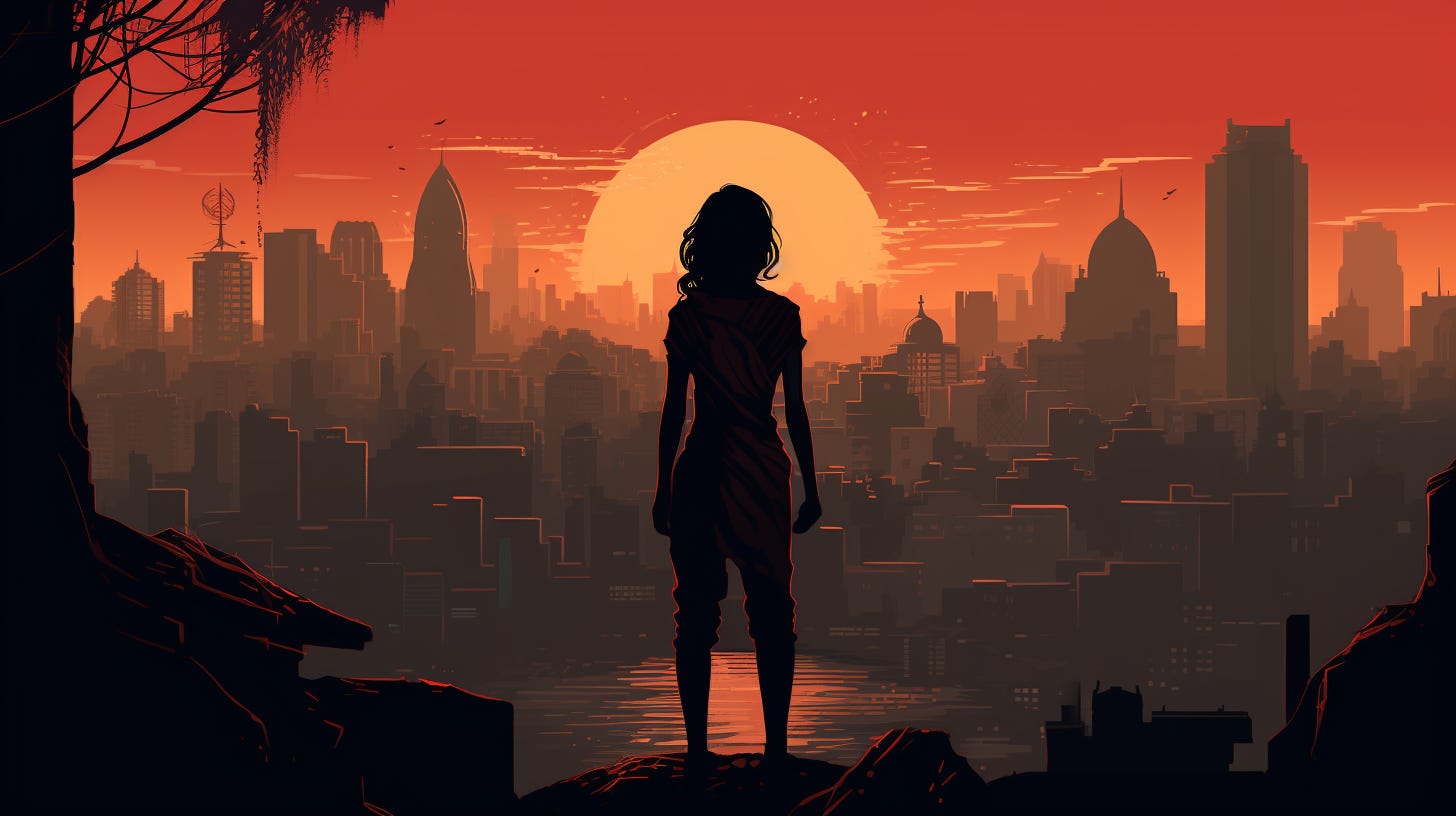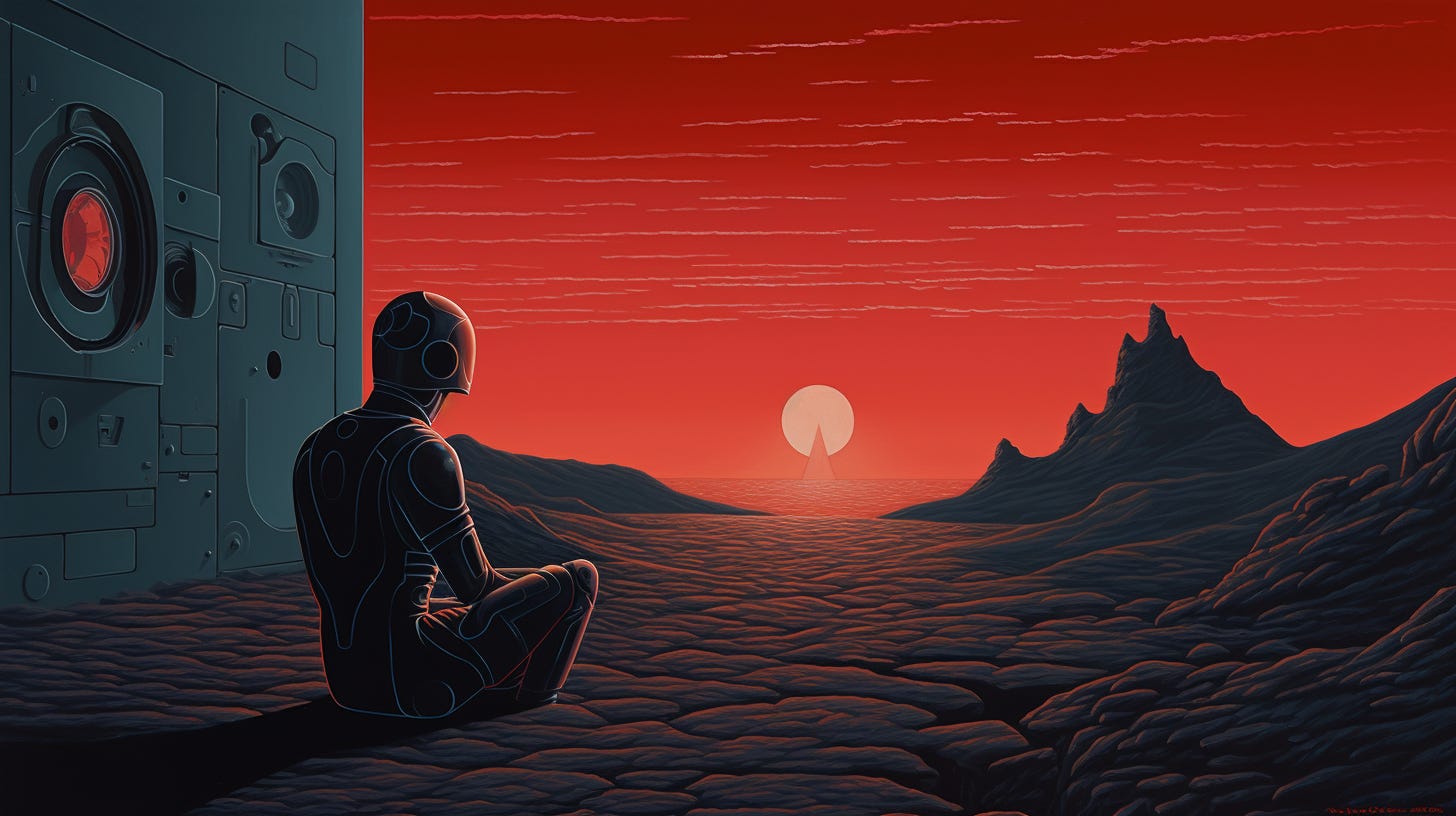Peace Begins From Within.
Inward is the way.
What will it take for us to co-exist as a human species where we work together, celebrate our differences, and help humanity realize we are stronger when we leverage our asymmetrical cultures, views, skills, and methods to help build our society?
When did it become about us vs them? How did we start separating our “humanness” with artificial values, borders, ideologies and heritage that our humans created thousands of years ago?
They were created to help us survive when our species lived in brutal times when survival was the only priority. We are no longer in those times but living in the fallout of a post-atomic radioactive culture still lingering on where humans cling to as a source of familiarity. Our autonomic habits will always find solace in the familiar when we are cornered or pushed to our limits. At least it's the world we imagine and yet not the reality today. The fear of being “eradicated” is a trauma response that overrides all common sense and does not allow any room for compassion or logical reasoning.
The adage of extreme survival is to either eat or be eaten.
How do we help humanity imagine a society where we can look beyond our selfish needs and desires as our driving force to survive? A drive that has blinded us to the fact that we are thriving but instead spend our energies looking over our shoulders in a constant tortured state.
Is it that we don't trust anyone? Or perhaps we don’t trust ourselves?
I envision a world where the best of our minds from around the world and every human being can live a life that makes it amazing just to be human. A society that values life for simply being us not measured by our incessant need to externally validate our existence separated by our artificially constructed values. It's this world where one is “rated” higher because of skin colour, nationality, culture, power, and material accumulation.
What will it take?
I don't have the answer. I even asked ChatGPT if would assist me with such a complex problem. This is the set of answers it gave me:
Education and Awareness: Promoting education that emphasizes critical thinking, empathy, and understanding of different cultures can help break down barriers. Education systems that include global history, cultural studies, and languages can foster a sense of shared humanity.
Communication and Dialogue: Encouraging open dialogue between different groups, fostering intercultural communication, and creating platforms for exchange can help people understand and appreciate their differences.
Economic Systems Rethink: Considering alternative economic models prioritising well-being and sustainability over profit, such as the doughnut economic model or cooperative business structures, could shift the focus from money to quality of life.
Collaborative Governance: Developing international institutions and agreements that promote cooperation over competition could lead to more collective problem-solving and shared progress.
Technology and Innovation: Leveraging technology to solve global challenges and to facilitate collaboration across borders can help unite people towards common goals.
Celebrating Diversity: Creating spaces and opportunities to celebrate different cultures and perspectives can help build mutual respect and appreciation.
Shared Goals and Challenges: Recognizing and acting on global challenges that affect all humans, like climate change, can create a sense of unity and common purpose.
Empathy and Compassion: Cultivating empathy through storytelling, media, and personal connections can help people see the world from others' perspectives.
Leadership and Role Models: Leaders who embody and promote inclusive and collaborative values can inspire others to follow suit.
Policy and Institutional Change: Implementing policies that promote equity and justice, and reforming institutions to be more inclusive and representative, can help level the playing field.
Global Citizenship: Encouraging the concept of global citizenship, where individuals see themselves as part of a global community, can help transcend nationalistic and divisive ideologies.
Conflict Resolution: Developing effective ways to manage and resolve conflicts peacefully can prevent the escalation of us vs. them dynamics.
ChatGPT also suggested a mind map to visualize the solution:
In my opinion, to begin such a process requires acceptance, forgiveness, love, and healing. We all have this in infinite abundance with no constraints or restrictions. It’s a long but worthwhile process to explore that will require patience but for humanity, it begins with the most important thing. Acceptance and taking responsibility. Quite amazingly, ChatGPT gave this path to healing and building a collaborative society.
Where are you on this map? Most of us may need to start right on top: acknowledgement.
One thing is clear. This path for humanity can only begin from within. It starts with us individually.
What kind of peace can we have if we are at war within our minds? Never mind the wars that rage on between nations if we are fighting at home with our spouses or our neighbours.
It starts with YOU.






